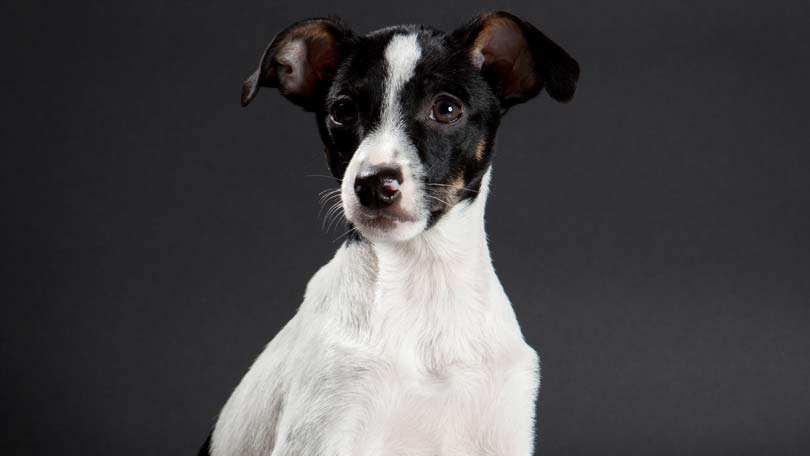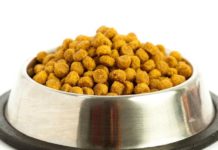
Your dog is a member of your family, so when he is sick, it is normal to worry. Some symptoms, such as diarrhea which will be discussed in this article, can either be very serious or rather minor. Many pet owners run to the vet at the first sign or symptom that something may be wrong. Others wait far too long after symptoms appear before thinking about curing dog diarrhea.
The presence of occasional diarrhea is not a cause for alarm as most dogs will likely – at one time or another – develop an upset stomach and exhibit symptoms such as vomiting and/or diarrhea. Usually, these symptoms will subside on their own in less than 24-hours. If this is the case with your pet then there is no need to treat your dog in any way. However, if the symptoms continue longer than 24-hours, you will need to think about how to treat your dog.
Diarrhea is not an illness, but rather it is a sign or symptom that something could be wrong with your pet. There are many reasons that your dog could be experiencing diarrhea. These include a change in diet, eating moldy food, ingesting a toxic substance, the presence of internal worms or parasites, ingestion of certain foods, ingestion of foreign objects, stress or even a more serious disease such as pancreatitis, kidney disease or others.
Sometimes when your dog has diarrhea, it is important to seek professional treatment immediately.
If any of the following are true for your pet that is experiencing diarrhea, you should bring him to the vet as soon as possible.
- Your dog is lethargic
- He is acting sick (i.e. seems to be in pain, is sleeping more than usual, has runny or watery eyes etc…)
- Has a fever (for dogs this would be indicated by a rectal temperature of greater than 103.5)
- The dog is also vomiting
- Blood is present in the stool
- Dog seems to have abdominal pain or appears to be bloated
- The dog seems to be dehydrated
Any of the above symptoms combined with diarrhea could be signs of a serious medical problem. You should get your dog to a vet or pet emergency hospital right away.
If, however, the diarrhea is not accompanied by any other symptoms, there are ways that you can try and treat the problem yourself at home. Keep in mind that even if the diarrhea is not the result of a major illness, dehydration can become a problem at any time if the diarrhea continues. For this reason, it’s important to check your dog each day to be sure that he is not becoming dehydrated. One way to do that is to feel his gums. If his gums are dry or feel a bit sticky, that could be a sign that he is dehydrated and medical attention is required.
If you do decide to visit the vet, bring a fresh stool sample. That will help your vet determine the cause of the diarrhea.
If no other symptoms are present, and your pet does not appear to be dehydrated, here are some methods you can try to rid help ease the diarrhea without making a trip to the vet.
Bland Diet – Just as people at times experience bouts of diarrhea that is annoying but not serious, so can your pets. A few days on a bland diet may help ease the problem. To do this you’ll need to cut the amount of food that you normally feed your dog. A sample of the foods you may want to include on a bland diet are low-fat meats, such as chicken. Be sure that the meats you select are cooked thoroughly. Other foods you may try are cooked white rice or oatmeal. A 50/50 mixture of meat and rice or oatmeal will provide sufficient nutrition. You can also include small amounts of plain yogurt and cooked sweet potato.
Both the yogurt and the sweet potato can be added to the meat.
You may want to withhold food for 24 hours before beginning the bland diet. This will allow your dog’s system to empty completely. If you decide to withhold food, be sure that you still provide water for your pet.
If the diarrhea has subsided you may start to reintroduce his regular foods.
Pet Feeding Bowls – Some pet owners think that because their dog licks his food and water bowls clean each day that they will remain free from harmful molds and bacteria. This is not always true. Some of these harmful substances cannot be seen with the naked eye, but can still harm your pet including causing him to have diarrhea.
To avoid this problem, simply wash the bowls thoroughly with warm soapy water at least every other day. Be sure to rinse thoroughly as ingesting traces of soap probably won’t help settle your dog’s stomach!
Natural Remedies
Some pet owners rely on natural remedies, such as the use of herbs, in order to cure their dog’s diarrhea. One example is the introduction of probiotics into your pet’s diet. Probiotics are thought to work in the intestine to revive the natural bacteria that is necessary for digestive health.
Another trick used by some pet owners is to feed your dog canned pumpkin. Be sure that it is 100% pure pumpkin and not a pumpkin flavored pie filling. Interestingly, pumpkin may help with constipation as well as with diarrhea.
If you visit your vet, he may prescribe an antibiotic or other treatment depending on the cause of the diarrhea. Remember, there are many possible causes of diarrhea in your dog. Some are harmless and will pass on their own while others are quite serious. If the symptoms continue, or any of the other symptoms listed above are present, you should get your dog to the vet immediately.
There is no need to panic at the first sign of diarrhea, but it is important that you do not ignore the symptoms for too long either. Curing dog diarrhea is not usually complicated. Watch your dog carefully and act quickly when there is a problem. Doing so will help keep your pet healthy and happy!





